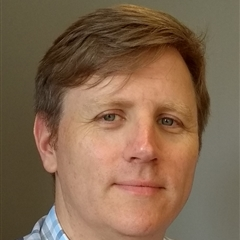Professor Conrad Bessant

Professor of Bioinformatics
Email: c.bessant@qmul.ac.uk
Telephone: https://calendly.com/bessant
Room Number: Third Floor, Empire House (Whitechapel Campus)
Website: https://bezzlab.github.io/
Profile
Conrad Bessant has over 20 years’ experience of data science, tackling research questions in analytical chemistry, biomolecular science, and qualitative healthcare studies.
His overarching research interest is the automation of scientific discovery in the biomedical domain. While some aspects of biomedical research such as data acquisition and routine analysis are already commonly automated, fundamental research activities such as hypothesis generation, identification of relevant datasets and interpretation of results still require extensive input from human experts. This is becoming increasingly intractable as available datasets grow in size and complexity – innovative solutions to automate the process are needed.
Technologies being used by Conrad’s research group to automate the scientific discovery process include machine learning, logic modelling, network science and Bayesian inference.
Conrad is based in QMUL’s Digital Environment Research Institute and is a fellow of the Alan Turing Institute. He leads QMUL’s MSc Bioinformatics programme and is the academic lead of the UKRI AI for Drug Discovery Doctoral Training Programme.